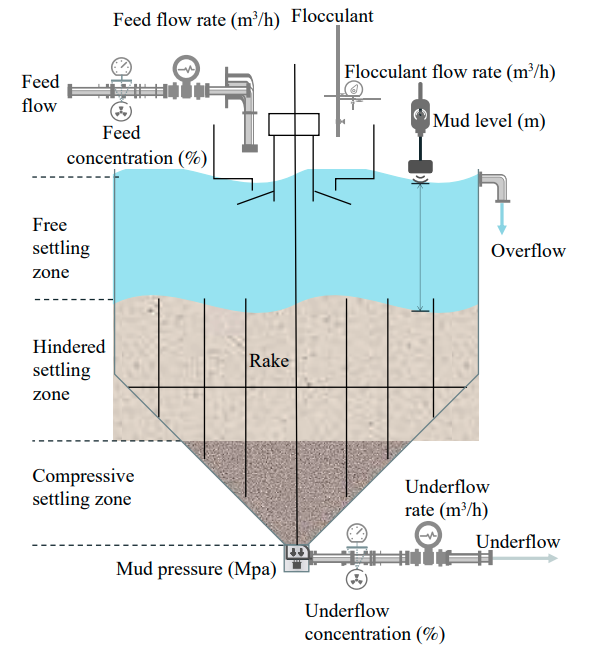Continuous-Time Prediction of Industrial Paste Thickener System with Differential ODE-Net
Abstract:
It is crucial to predict the outputs of a thickening system, including the underflow concentration (UC) and mud pressure, for optimal control of the process. The proliferation of industrial sensors and the availability of thickening-system data make this possible. However, the unique properties of thickening systems, such as the non-linearities, long-time delays, partially observed data, and continuous time evolution pose challenges on building data-driven predictive models. To address the above challenges, we establish an integrated, deep-learning, continuous time network structure that consists of a sequential encoder, a state decoder, and a derivative module to learn the deterministic state space model from thickening systems. Using a case study, we examine our methods with a tailing thickener manufactured by the FLSmidth installed with massive sensors and obtain extensive experimental results. The results demonstrate that the proposed continuous-time model with the sequential encoder achieves better prediction performances than the existing discrete-time models and reduces the negative effects from long time delays by extracting features from historical system trajectories. The proposed method also demonstrates outstanding performances for both short and long term prediction tasks with the two proposed derivative types.
Bibtex:
@articleInfo{JAS-2021-0851,
title = "Continuous-Time Prediction of Industrial Paste Thickener System With Differential ODE-Net",
journal = "IEEE/CAA Journal of Automatica Sinica",
volume = "9",
number = "JAS-2021-0851,
pages = "686",
year = "2022",
note = "",
issn = "2329-9266",
doi = "10.1109/JAS.2022.105464",
author = "Zhaolin Yuan" and "Xiaorui Li" and "Di Wu" and "Xiaojuan Ban" and "Nai-Qi Wu" and "Hong-Ning Dai" and "Hao Wang",
}


Leave a Reply